For some, the word archive evokes dusty documents stuffed into boxes, stacked in a corner and forgotten. Boxes that we dare not approach for fear of not finding THE document that we have been trying to track down for weeks. Others imagine ancient manuscripts tucked away in museum basements, reserved only for gloved researchers and inaccessible to the public. How is it that one word can evoke such vastly different images in the mind?
Let’s explore the origins of the word “archive” to find the answer and better understand what it is today…
Archive comes straight from antiquity. It refers to the prefix “archae-” and comes from the Latin “archium” or “archivum”, which itself comes from the Greek name “archeion,” a derivative of the word “arch.” “Arch” means both the beginning or the principle.
But the most learned are divided on the meaning of the word. For some experts the word refers to “very old things”, while for others it refers instead to a place, the residence of the main magistrates of the Greek world.
Knowing this, it’s easier to understand why archive can be a document we set aside as well as a place where we keep nuggets of history, like the archives of the famous Smithsonian Institute and the Archives of France
Archiving through the ages

The need to store important documents that prove rights and responsibilities has been around for more than 2 500 years. Indeed, King Philip IV of France saw archiving as such an essential function that he created the position of guarding the archives of the Kingdom, called the Treasury of The Charters and parliamentary records.
Initially preserved for legal purposes, archived documents have gradually become an essential source of information for historians since they used them for their own research and refer to them as well quite often. Also interesting to note is that archive is seldom used in the singular form. Much more popular is the plural archives, which first appeared in French in 1416 in the consular registers of the French city of Lyon.
“A reflection of the activity of individuals and organizations”
The International Council of Archives now defines archives as “the documentary product of human activity retained for their long-term value. They come in a range of formats – written, photographic, audio-visual – in digital or analogue form. Archives are maintained by public and private organizations around the world
Therefore, archives are a real-time reflection of the activity of individuals and organisations, and they provide a direct view of past events.
In France, two main categories of archives stand out for public archives today: on the one hand the central archives (national and senior branches of the civil service), and the local archives (departmental, communal, hospital, business, etc.). But a third meaning has emerged: the services and institutions that take care of records management.
Various archival formats
The archives now cover several different formats. They can be physical or digital, classified as current, intermediate or definitive depending on their use. They are often subject to a conservation policy and a classification plan in companies or institutions.
If today archive is a word that is familiar to us all, it is in part because literature has highlighted it many times.
Like the 18th century French writer, politician, diplomat and historian Châteaubriand, who said: “The songs of Pindare form, together with Homer’s works, the brilliant archives of Greece.” Or the author Milan Kundera: “It is in the files of the police archives that our only immortality is found.” Or the American writer, poet and literary critic Edgar Allan Poe, who used it very differently: “Grey hair is an archive of the past.”
Do you have any questions and would like to talk to an expert? Contact us.







